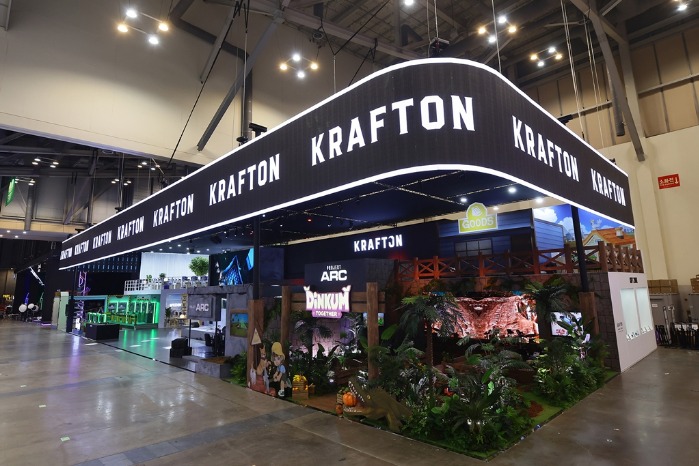In late June 2025, game developer Krafton—best known for PUBG: Battlegrounds—announced it would acquire Japan’s ADK Holdings for approximately $517 million. This Krafton ADK acquisition marks a dramatic extension of Krafton’s strategy: blending immersive video game worlds with animation, intellectual property (IP) strength, and global creative distribution. It is a bold move, mixing cross-media ambitions with long-term growth. Let’s explore the significance, strategic benefits, potential challenges, and broader implications.
Why Krafton ADK Acquisition Makes Strategic Sense
Krafton has earned heavyweight status in global gaming through hits like PUBG. However, games today are multimedia franchises. They are not limited to console or mobile platforms—they breathe through animation, movies, and story expansions. Enter the Krafton ADK acquisition: ADK brings deep roots in Japanese animation, boasting contributions to iconic series like Doraemon, Yu-Gi-Oh!, and Crayon Shin-chan.
By integrating ADK’s capabilities, Krafton gains access to sophisticated animation pipelines, production teams, and IP frameworks. This fusion allows Krafton to produce original anime series based on game universes or vice versa. In effect, this acquisition transforms Krafton from a gaming specialist into a multi-dimensional entertainment powerhouse—bringing together gaming, storytelling, and animation under one roof.
Leveraging Creative IP and Distribution Strength
The value in Krafton ADK acquisition extends beyond animated content. It brings IP development expertise, merchandising know-how, and robust regional relationships—especially in Japan and broader Asia-Pacific markets.
Games thrive on character recognition and cultural resonance. Collaborating with ADK allows Krafton to co-create characters optimized for cross-media rollouts—such as manga, lifestyle products, TV series, and global merchandising. For example, a new PUBG character could headline an anime series, followed by toys and localized media across Southeast Asia.
Furthermore, ADK’s existing media partnerships and distribution networks—across broadcast TV, streaming, and merchandise channels—provide Krafton direct access to fans outside the typical gaming ecosystem. This vertical integration creates a robust franchise model, increasing both fan engagement and long-term revenue potential.
Production Synergies and Talent Integration
Another business rationale underpins the Krafton ADK acquisition: combining production strength with storytelling power.
- Animation Expertise: ADK’s teams include experienced animators, scriptwriters, and studio producers. They offer storytelling craftsmanship that complements Krafton’s game studios.
- Cross-Training Opportunities: Game designers can learn from screenwriters; animators can explore interactive storytelling—creating hybrid experiences like animated cinematic game content.
- Cost Efficiencies: Centralizing production resources may reduce duplication and drive operational savings—especially in location scouting, voice recording, and marketing efforts.
- Global Marketing Traction: An animated trailer or single-episode release in Japan or Southeast Asia might elevate game awareness, driving downloads and purchases worldwide.
This synergy represents a deliberate shift: games informing animation, and animation fueling gaming—the hallmark of integrated IP ecosystems.
Financial and Market Implications
The costliest investment of roughly $517 million in the Krafton ADK acquisition highlights substantial expectations. It reflects Krafton’s confidence in cross-border, cross-media revenue potential. For context, previous acquisitions—like Japan-based Tango Gameworks—enabled new game IP like Hi-Fi Rush but stayed close to gaming lines. ADK unlocks creative universes well beyond that.
From an investor standpoint, mixed entertainment businesses often command greater multiples than pure-game studios. Over time, the acquisition could shift Krafton’s revenue towards a more stable AAA-like model, complementing game-related sales with media licensing, advertising, and merchandise inflows.
The timing also aligns with broader waves in digital media—franchises like Arcane (based on League of Legends) and The Witcher series show global appetite for animated content tied to games. With Krafton ADK acquisition, Krafton is positioning itself to ride this wave at scale.
Integration Challenges and Cultural Alignment
Despite opportunities, the Krafton ADK acquisition comes with risks.
- Cultural Differences: Japanese animation studios use distinct workflows—project-based teams, tight creative control, long lead times—very different from Agile game development. Successful integration will require mutual respect and adaptive collaboration practices.
- Talent Retention: Animation professionals often value creative autonomy. Ensuring a framework that allows ADK teams to maintain their creative identity will be key to long-term success.
- Brand Identity: Krafton must manage audience expectations. Krafton’s PUBG currency is violence-driven gaming; ADK brings family friendly IP. Harmonizing these images without confusing fans will require finesse.
- Execution Risk: Producing a hit anime series, managing distribution deals, or navigating licensing negotiations all require new capabilities. Krafton must either build internal expertise or partner effectively.
These challenges are manageable—but they take strategic attention, patience, and investment.
Global Growth and Competitive Positioning
The Krafton ADK acquisition positions the company as part of an elite but growing group of entertainment companies merging games and animation. It now competes not just with Riot Games or Epic Games but also with Disney, Netflix, and Tencent in cultural influence.
Asia-Pacific R&D is also evolving, with YouTube and Bilibili increasingly investing in animation and game‐based content. Krafton could leverage ADK’s footprint to deepen its presence in emerging markets like India, Indonesia, and Southeast Asia—where demand for local-language animated entertainment is exploding.
Moreover, combining gaming and animation increases ecosystem stickiness. Gamers who watch the anime series are more likely to engage deeply with game content. Viewers who enjoy animated characters may try the game. This “cross-pollination” ensures that customer lifetime value becomes more predictable and intertwined.
Final Thoughts
The acquisition of ADK is a defining moment for Krafton. The Krafton ADK acquisition marks the transition from a pure gaming entity to a multifaceted entertainment house that combines interactive gaming and immersive animation.
This bold move reflects confidence in the global appetite for cross-media storytelling—and Krafton’s commitment to deliver content across platforms. The integration challenges are real, but so are the opportunities: stronger IP monetization, enhanced fan engagement, and diversified revenue streams.
If executed well—respecting creative cultures, maintaining quality, and aligning brand identities—this acquisition could be a landmark moment in games history. Krafton may emerge as a cultural architect, weaving stories through games, screens, and beyond.
Read More






 Sunday, 01-03-26
Sunday, 01-03-26







